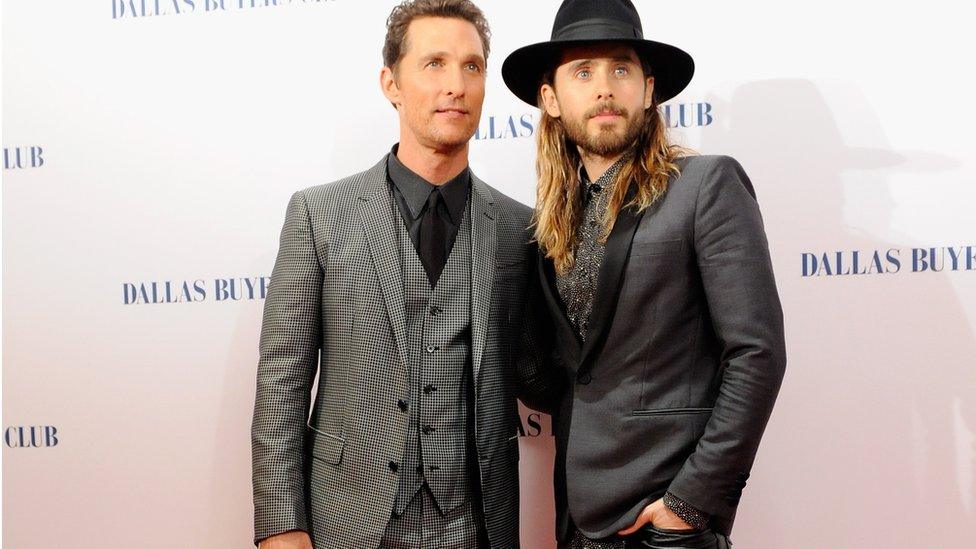Dallas Buyers Club drops Australia piracy case
- Published

The Hollywood studio behind the US film Dallas Buyers Club is no longer pursuing its piracy case against Australians accused of illegally downloading the movie.
An Australian court in December had blocked the company from accessing details of customers who illegally downloaded the movie.
A deadline to appeal against the court decision lapsed at noon on Thursday.
The ruling had prevented the company from so-called speculative invoicing.
This is where account holders accused of piracy are threatened with court cases that could result in large damages unless smaller settlement fees are paid.
The lawyers representing Dallas Buyers Club LLC (DBC) said the decision not to appeal was a commercial one, as it was uneconomical and impractical to pursue the case under the terms set by the court.
"Our client considered the costs and benefits of taking this particular application further and decided against it," Michael Bradley of Marque Lawyers told the ┤¾¤¾┤½├¢.
Mr Bradley pointed out, however, that "the case hasn't finally determined any of the underlying legal issues".
DBC says it identified 4,726 unique IP addresses from which the film was shared online using BitTorrent, a peer-to-peer file sharing network.
The ruling by the Federal Court of Australia had said that for A$600,000 ($442,000; £283,000), DBC was allowed to obtain the details of those alleged infringers from network provider iiNet.
However, it would only be able to seek damages for the cost of purchasing the movie legally and the expenses of obtaining the individual's details.
Back and forth
Initially, an April 2015 court decision had ordered the iiNet to hand over the details of those customers.
But in May, that order was put on hold, as the court asked DBC for details of the letters it wanted to send to customers.
The next court decision in December said that even after the court had seen the proposed letters, as well as the scripts that DBC staff would follow in phone conversations with alleged infringers, it was unclear how much money the company would ask customers to pay.
According to the court, DBC had wanted to pursue alleged infringers for:
the cost of an actual purchase of a copy of the film
a "substantial" one-off licence fee for each infringer on the basis that they were engaged in the widespread distribution of the film
a claim for additional damages
a claim for damages arising from the amount of money it had cost DBC to obtain each infringer's name.
The court said the second and third requests were "untenable".
- Published22 July 2015
- Published14 August 2015